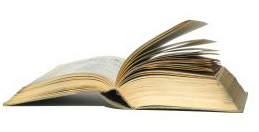It is argued that the average speaker has a vocabulary of approximately 20 000 words. You can even test yourself online to see how large (or small) your current vocabulary is.
There’s also the tongue-in-cheek statement that women use more than double the words in comparison to men. I’d rather not comment on this, but you can read more about it here.
 But what to do if you struggle with section of text and the right word escapes you? I’ve always been a huge supporter of dictionaries – my desk sighs beneath three of them, but there are easier and faster alternatives which could add value to the traditional versions.
But what to do if you struggle with section of text and the right word escapes you? I’ve always been a huge supporter of dictionaries – my desk sighs beneath three of them, but there are easier and faster alternatives which could add value to the traditional versions.
Types of electronic dictionaries can be divided into two sections; online dictionaries and downloadable dictionaries. Each has it’s own advantages, disadvantages and nifty extras. Unfortunately we can’t recommend a specific version, but you can play around with what’s available and let us know which you prefer.
DOWNLOADABLE DICTIONARIES
- Ultimate Dictionary is easy to install and use and comprises a collection of 61 dictionaries.
- WordWeb provides a dictionary and a thesaurus with a wide variety of functions including a keyboard shortcut for faster access.
- TheSage has more than 210,000 definitions and a thesaurus providing over 1,400,000 relationships between definitions.
- LingoPad contains a German-English dictionary and additional dictionaries can be downloaded. You can import your own dictionaries and word lists.
- Artha is based on WordNet, a large, lexical database of English, developed at Princeton University.
- Aard Dictionary allows users to look up meanings for difficult words using multiple dictionaries in multiple languages. More than 50 different dictionaries can be added to its database.
- GoldenDict is a usable on Windows and Linux and supports looking up and listening to pronunciations using forvo.com.
- Lingoes is an easy-to-use dictionary and text translation program that offers look up dictionaries, full text translation and pronunciation of words in over 80 languages.
- Mobysaurus Thesaurus contains 30,260 roots and more than 2.5 million synonyms. Mobysaurus Thesaurus is freeware, but you have to register
ONLINE DICTIONARIES
- Dictionary.com is an interactive and reliable source used by 50 million users worldwide per month. It’s the largest and most authoritative free online dictionary and mobile reference resource and can be used on various mobile platforms.
- Free Dictionary also has, apart from it’s standard functions, other types of dictionaries available, such as Medical, Legal, and Financial dictionaries. It’s contains a Thesaurus, Acronyms and Abbreviations, Idioms, Encyclopedia, a Literature Reference Library, and a search engine.
- Wiktionary is the lexical companion to Wikipedia. Wiktionary is a wiki and can be edited, however, stricter criteria than their sibling, is applicable.
- Merriam-Webster Online Dictionary is the electronic equal of the Merriam-Webster’s Collegiate® Dictionary and includes abbreviations, foreign words and phrases, biographical and geographical names.
- Oxford Dictionaries Online offers guidelines for better writing, puzzles and games, and a language blog.
- Collins Dictionary has over 1 million entries, and provides free access to word definitions, translations, and examples. It also has a section where you can play word games.
- Word-Net Online can be used online, but also offers a free dictionary and thesaurus programme for Windows.
- OneLook can be used to find a word when you only have part of it. With their Reverse Dictionary you can describe a concept and it supplies you with a list of words and phrases related to it.
- Urban Dictionary is a database of slang words and phrases submitted and rated by site visitors, monitored by volunteer editors. The definitions on Urban Dictionary are meant to be slang or ethnic culture words, phrases, and other terms not found in standard dictionaries.
- MetaGlossary sources and extracts definitions of terms and phrases from the web and gives you precise explanations for them.
[SOURCE: www.howtogeek.com]


In addition please also remember the links to e-dictionaries on the library website:
http://library.sun.ac.za/English/search/Pages/lang-dict.aspx